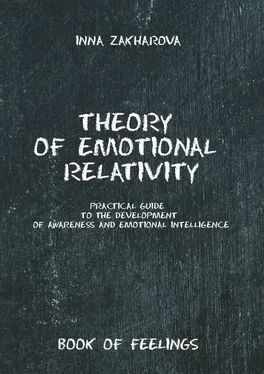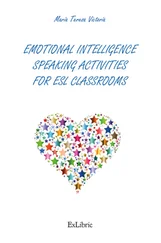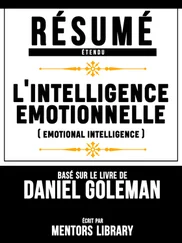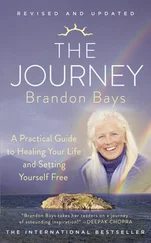Theory of emotional relativity
Practical guide to the development of awareness and emotional intelligence
Inna Zakharova
Idea and Editor Evgeny Zakharov
Editor Alena Rabkevich
Translator Anastasia Stepanova
© Inna Zakharova, 2020
ISBN 978-5-0051-6900-6
Created with Ridero smart publishing system
The development of emotional intelligence is gaining increasing importance (is becoming more popular nowadays). But what it means, no one fully understands. There are many definitions of this concept, the main one is the ability to understand and manage your own emotions and those of the people around you. But is that enough? What does it mean to understand emotions?
To understand the emotion, first of all, you should know how to identify it, give it a name and change if necessary. The mechanism of the birth of emotions is not so simple, the emotion is not born in a random order, it connects with our innermost psychological processes in the structure of our personality. Emotions are not only a reaction to the real circumstances in our life, but a kind of connection with our ancestors, with the more global systems – family, dynasty and nation. We feel only 10% of emotions from the present moment, the rest 90% is emotions in the combination of systemic feelings connected with our deepest convictions which appeared far in the past, long before our birth, they are kept in our subconscious and manage our life.
But first things first.
To start, we are offering to open a test at the end of the book and define your subjective level of Emotional Intelligence to notice the changes that will happen with you while reading “Theory of Emotional Relativity”.
We’ve done it! Finally, the book took the very shape that is in front of you. I am happy and at the same time I don’t believe that we’ve managed to transfer the years of experience into an easy-to-read text. Perhaps, you notice, my dear readers, I always use the plural number? And this is not because of superiority complex but because of a lot of people devoted their energies to create this work. I begin with the first and the most important “heroes” of this book – our clients and those who had enough courage to dive into the ocean of unclear emotions, adapt and become a captain who manages his “Life” boat. Your endless trust, surprised and inspired eyes were that very light put us in the right way. Your sincere interest and readiness to study from the beginning unconscious flow and stabling blocks of emotional life sphere let us create and improve our models and algorithms. And your obvious transformations during our training programs and consultations gave us constant confirmations of effectiveness and usefulness of our work. Your gratitude as the main of senses (you know!), supported me and my team on the way to creation.
I’d also like to express gratitude to my parents who gave me birth and love and, as well as my countless teachers whom I don’t even dare to name so as not to miss someone. Your lectures, trainings, practical tasks, master-classes, webinars and books formed my life approach. Coaching, Enneagram, NLP, Family Constellation – mastered directions through your help. Each of these methods shed light on emotional life sides and all together acquired the necessary volume and consistency.
This book has never shaped without my “favorite osteopath”, attentive and interested listener, friend, opponent, coach, transcriber and text editor, Alena Rabkevich. A year left when you agreed to accept this challenge, and support, and help me to create this “Emotional Bestseller”, “The Book of Emotional Changes”, “The Book of Feelings” and “Practical Guide for the Development of Awareness and Emotional Intelligence”. Thank you so much for your attention, which you were listening to my emotional narratives with, asked me clarifying questions, made me look for and find simple and clear examples describing difficult things. The time together, spending on the book creation, glided effectively.
And the biggest thank to my husband, Evgeny, he is my personal trainer and coach, who was constantly urging me and terrorizing me to finish this book, that he even agreed to write these thanks to everyone involved instead of me. Here he is so cool and modest, and I love him very much, although he infuriates me regularly.
Thanks a lot. Inna Zakharova
A need is a state of a living being, expressing a dependence on what constitutes the conditions of its existence. A. Maslow in his pyramid described these needs. They can be divided into three varieties: physiological needs, psychological needs, spiritual needs.
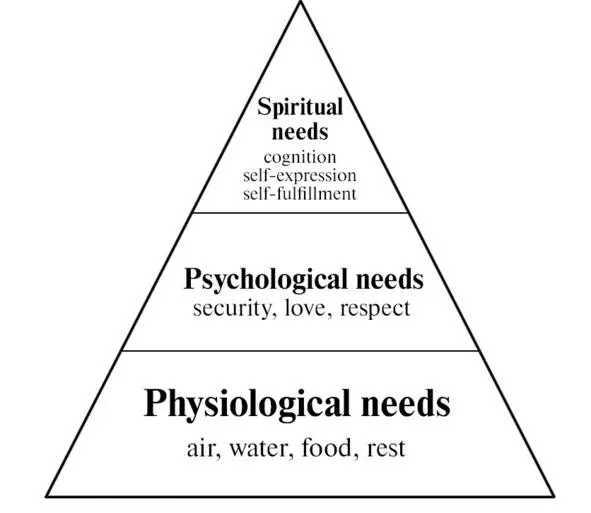
Every person has his leading psychological need. The need can be considered as a basic one if it is satisfied by the following conditions:
• if needs are totally unsatisfied, it leads to a disease
• if needs are satisfied, it cures a disease
• In conditions of free choice, a person prefers to satisfy this particular need
As forphysiological needs, everything is clear and obvious. If you don’t satisfy such needs as eating, sleeping, breathing and drinking – our body begins hurting and at the end died. Even an unsatisfied need in sexual relationships leads to race suicide. Our instincts, innate behavioral patterns, control satisfying these needs. The goal of instincts is to automatize all processes which help our organism to survive.
As for psychological needs, everything is not so clear. Emotions are instincts of a higher order. Their aim is to emphasize the importance of certain conditions for fulfilling actual needs.
Since ancient times, almost all living creatures cared for unity to deal with external threats, because where alone cannot cope with – together will be able to: “One man, no man.”
So there is an important need of man – to belong, to be part of something larger, and at the same time, a very strong fear of exclusion appears, which could mean certain death.
A group of people, united by one common goal is a system and the borders of this system define certain rules, which all group members must follow them. Following the hierarchy and following the rules means recognizing and respecting the whole system. Violation of the rules is followed by punishment, the most serious one is liquidation or exclusion. Duties and rights are determined by the hierarchy, which is also an important component of the system, primarily the tribal system, and all other systems are built on its principle.
It turns out that the opportunity to belong to a group carries new dangers: how to survive within a group, how to become an important part of it, to get better conditions for existence within a group, to take its place in the hierarchy (it’s good when you have a higher position: you have more rights and better conditions, but there are more responsibilities).
Studying emotional intelligence, we cannot consider a person as a separate unit. Man is a social being, and emotions are a connection with everyone around us. Emotions are always relationships, if there are emotions, it means there are relationships. There are always emotions, so we are always in a relationship. Even if a person is moved to a complete vacuum, he will have relationships and will experience emotions, primarily towards himself.
Relations with oneself are also systemic in nature, each “I” consists of “mother + father.” Self-attitude is formed on the basis of each parent’s self-relationship + partnerships + parent-child relationship up to the 7 thgeneration in geometric progression.
Читать дальше
